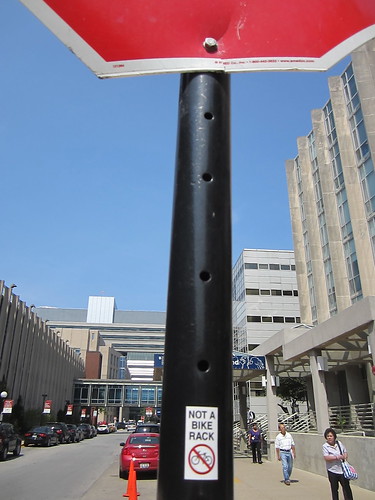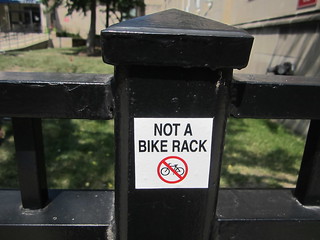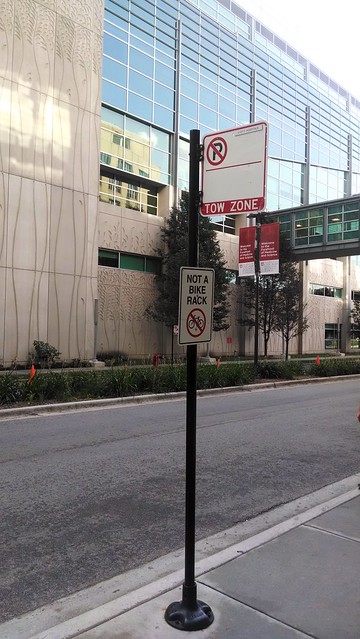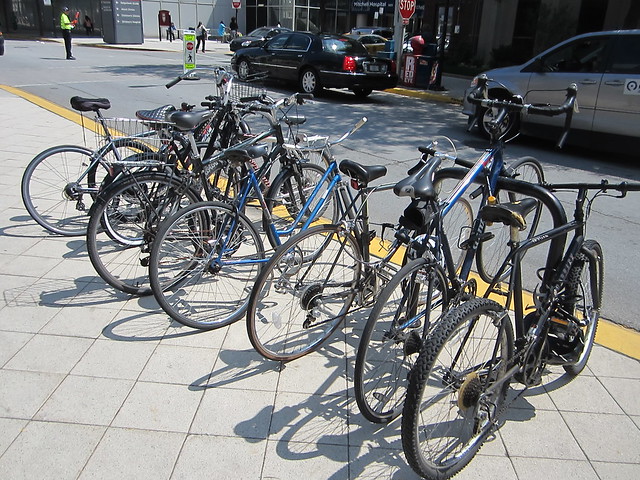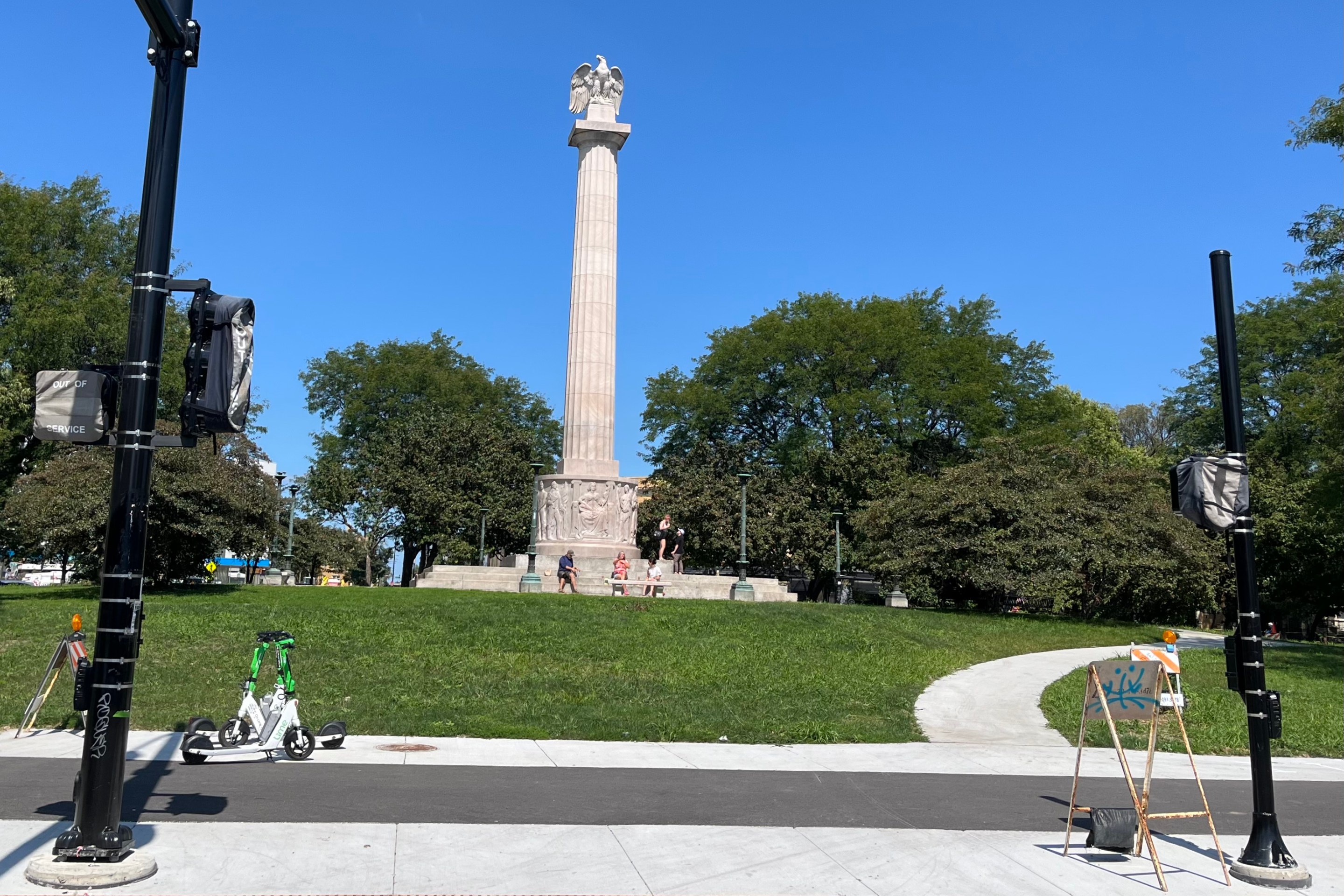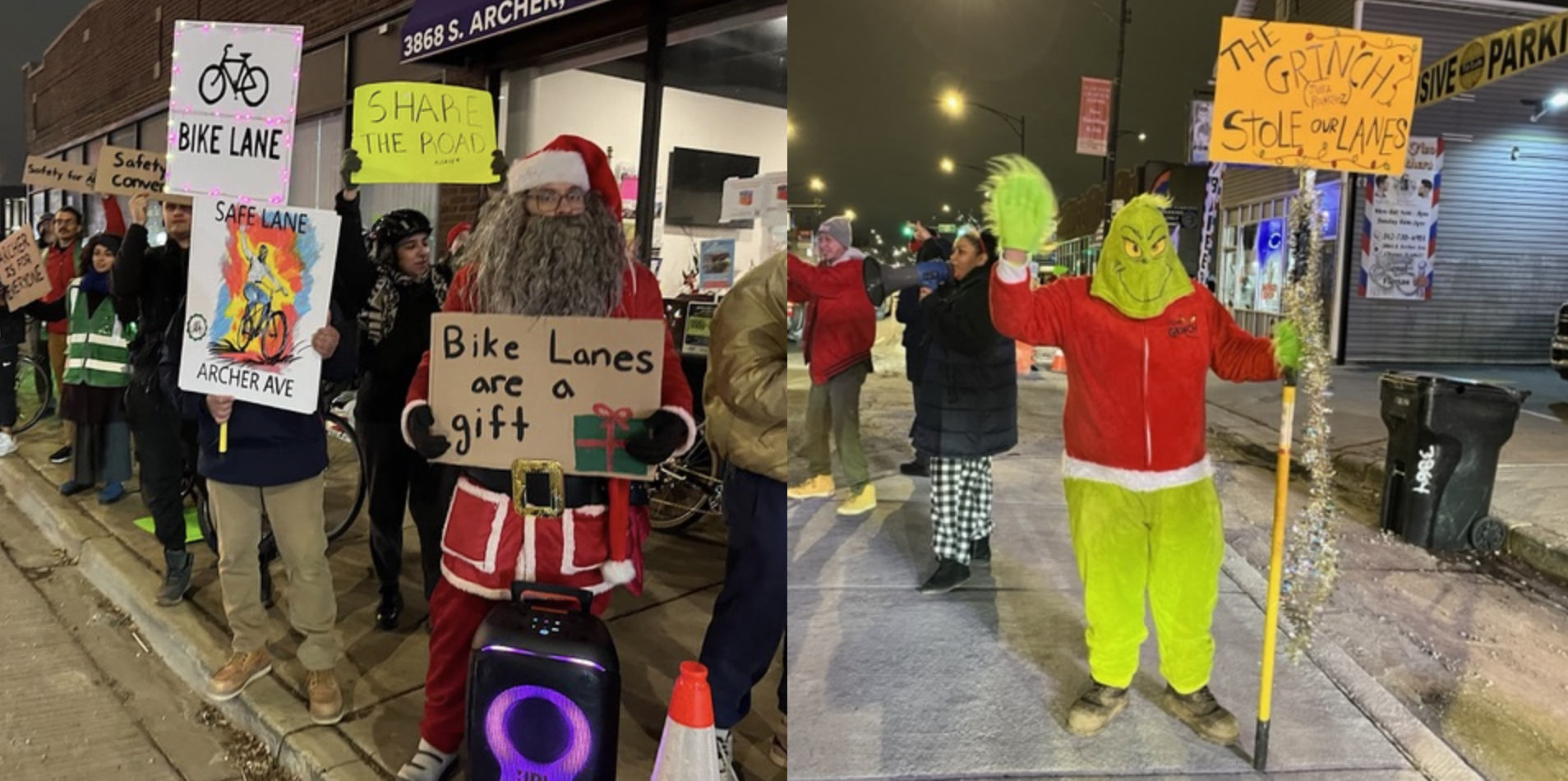Last week, I reported how the AMA building unlawfully installed a “No Bike Parking” sign on a city sign pole, then removed a bike that was legally locked to it. In response, Streetsblog reader and University of Chicago employee Elizabeth Edwards alerted me to a similar situation at the U. of C. Hospitals.
It appears that someone, perhaps acting on behalf of the hospitals, has undertaken an obsessive, rather passive-aggressive campaign to keep bikes off street furniture. Stickers reading “Not a Bike Rack” have been stuck on just about every fence, handrail, light post and sign pole next to hospital buildings on 59th, 58th, Maryland, and Drexel. In a few cases, a metal placard with the message has been affixed to a city-owned sign pole. On some fences, there are signs warning that locked bicycles will be removed.
The desire to prevent parked bikes from obstructing the path of patients and visitors, especially wheelchair users, is completely understandable. It’s very inconsiderate for cyclists to lock bikes to handrails and in other locations where they obviously cause an obstruction. Moreover, the hospitals would be within their rights to install signage telling people not to lock to fences and other fixtures on private property. If these warnings are ignored, they would have the right to remove the offending bikes.
However, it’s not legal for individuals or private entities to post stickers or placards on city-owned signs. Furthermore, the Chicago municipal code specifically states that it is legal to lock bikes to sign poles on the public right of way, as long as they’re not blocking foot traffic:
9-52-070 Parking: No person shall park a bicycle upon a street other than upon the roadway against the curb or upon the sidewalk against a rack, parking meter or sign pole to support the bicycle or against a building or at the curb in such manner as to afford the least obstruction to pedestrian traffic.
The University of Chicago press office and the Chicago Department of Transportation haven’t responded to inquiries I sent yesterday about the signage. Assuming that the hospitals are behind the campaign, they shouldn’t be scolding cyclists for legally parking on city poles.
If the hospitals want to ensure that parked bikes don’t obstruct the sidewalk, a more productive strategy would be to provide a sufficient number of bike racks in convenient locations. When I recently cruised around the hospital campus, I saw just three bike parking installations, two of which had only a handful of spaces.
For example, in front of the Duchossois Center for Advanced Medicine, 5758 South Maryland, there were only two “inverted U” bike racks, designed to hold a total of four bikes. However, there were seven bikes crowded onto the racks, plus two more cycles locked to themselves standing between the racks on kickstands. Clearly, more spaces are needed here.
Meanwhile, just south on Maryland is a five-story car-parking garage with zero bike racks inside. Driving may be the most practical way for many employees and patients to get to the campus, but an institution whose mission is to promote health should be encouraging biking, not discouraging it. The anti-bike signs and stickers on city poles need to come down immediately.
